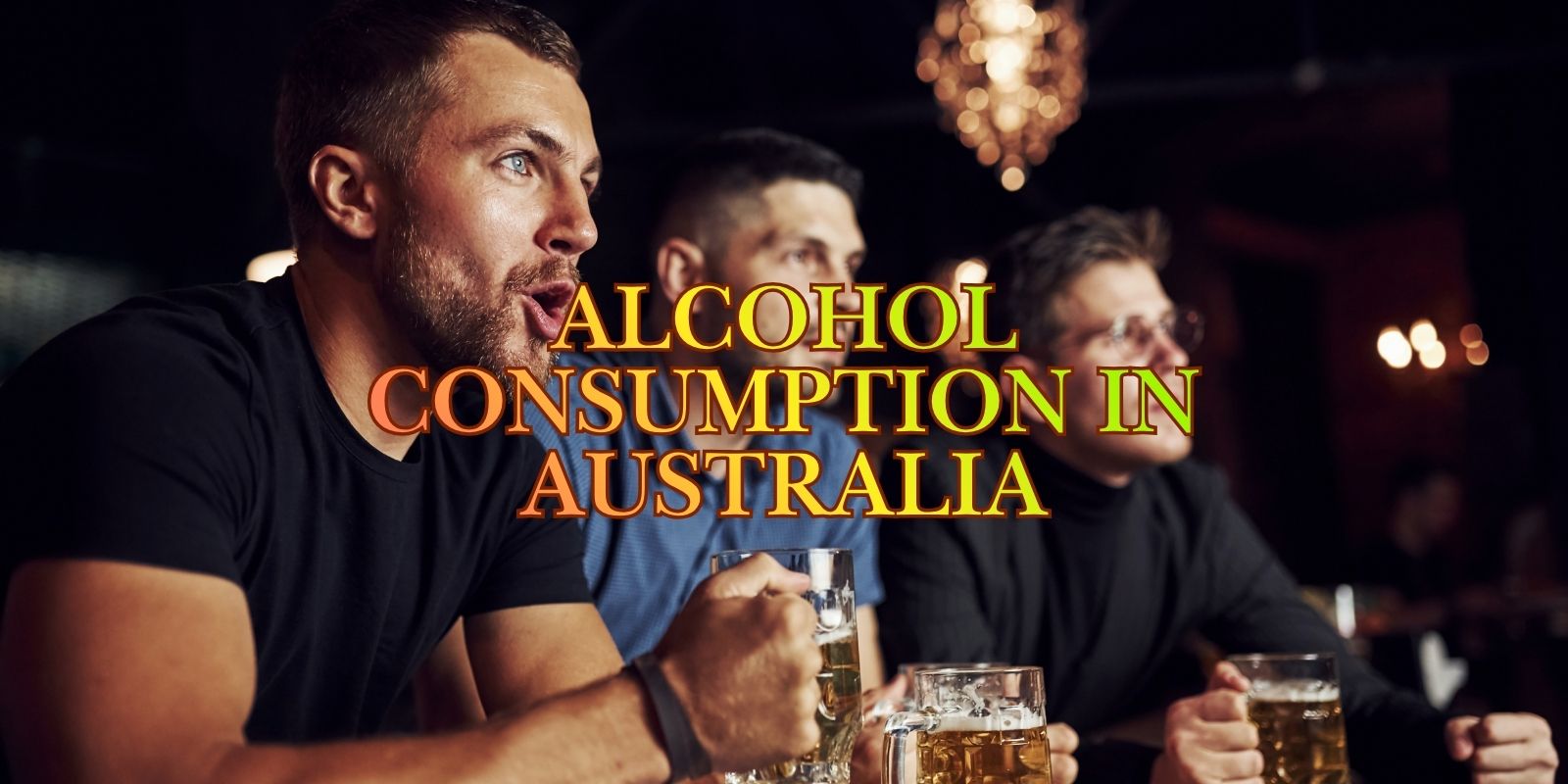Alcohol Consumption In Australia
Alcohol Consumption In Australia: Alcohol affects millions of Australians physically, emotionally, and socially. Whether you’re noticing the steady creep of extra drinks, worried about binge episodes, or ready to quit completely, hypnotherapy can be a gentle, evidence-informed way to change automatic patterns and reclaim control. This page explains how hypnotherapy helps with controlled drinking, reducing cravings, and supporting long-term recovery — using practical techniques, clinical insight, and compassionate care.
Hypnotherapy works by accessing the subconscious patterns that drive drinking behavior, then installing new responses that support choice, safety, and wellbeing. Below you’ll find clear guidance, therapy options, and trustworthy resources to help you decide on the next right step.
Table of Contents – Alcohol Consumption In Australia
- Alcohol and Its Impact in Australia
- Signs You May Be Drinking Too Much
- How Hypnotherapy Helps: Core Techniques
- Programs: Gain Control, Quit, or Moderate
- Practical Steps Between Sessions
- Evidence & Trusted Resources
- Key Takeaways
- FAQs
- A Gentle Path Toward Freedom

Alcohol Consumption In Australia – Alcohol and Its Impact in Australia
Alcohol is woven into Australian social life, from backyard barbecues to weekend celebrations, which can make it hard to recognize when “social drinking” becomes risky. National data shows a large majority of adults drink at some point, and a significant portion do so at levels that raise long-term health risks. These trends mean many people live with patterns that quietly undermine sleep, mood, relationships, and physical health.
Beyond statistics, alcohol can magnify feelings like loneliness, despair, and anxiety. What starts as a brief escape often becomes a loop: drinking blunts emotional pain temporarily while increasing vulnerability long term. If you’ve noticed your drinking increasing during stressful periods or that it’s become a default coping strategy, you are not alone — and there are practical, compassionate ways to change.
This page focuses on hypnotherapy as one clinically supported option to address the subconscious drivers of drinking. If you want government guidance on quitting or reducing alcohol, the Australian Department of Health provides an excellent practical resource on ways to cut back or quit. For many people, combining clinical information with therapeutic support creates the clearest path forward.
Signs You May Be Drinking Too Much
It can be difficult to measure your own drinking objectively when alcohol is an accepted part of social life. Signs to watch for include increasing tolerance (needing more to feel the same effect), frequent cravings, others expressing concern, and drinking that damages relationships or work performance. Physical withdrawal symptoms like shaking, sweating, or nausea when not drinking are also warning signs and deserve immediate attention.
For younger adults, binge patterns are more common and especially risky. Research and news reporting have highlighted how a substantial share of alcohol consumed by the younger population is in high-risk contexts, often during short periods of heavy drinking. Alcohol Consumption In Australia: This pattern increases acute harms and long-term health risk substantially, and targeted interventions can make a real difference.
If you recognize any of these patterns in your life — or if friends or family have raised concerns — it’s worth exploring options. You don’t have to decide everything today; a first step can be a friendly consult to understand your relationship with alcohol and whether hypnotherapy could support meaningful change.
How Hypnotherapy Helps: Core Techniques
Hypnotherapy addresses drinking at the level where many habits live: beneath conscious choice. Techniques commonly used include direct suggestion to install new automatic responses, aversion work to create negative associations with excessive drinking, regression to explore root causes, and self-hypnosis training so you can reinforce change between sessions. Each method is applied compassionately and adapted to your readiness.
Direct suggestion works by creating new subconscious anchors — for example, feeling satisfied after one drink or having a calm, present resource to draw on when cravings arise. Aversion techniques carefully introduce distaste for harmful patterns without shaming the person, helping motivation shift naturally. Regression explores early formative experiences that may be driving use as a coping tool and reframes those experiences toward safety and agency.
Self-hypnosis is especially powerful because it hands agency back to you. Short daily practices strengthen new neural pathways so that adaptive choices become the default. Combined with practical relapse-prevention planning and reinforcement recordings, hypnotherapy offers a rounded approach that supports immediate relief and durable change.
Programs: Gain Control, Quit, or Moderate
People come to hypnotherapy with different goals: some want to quit entirely, others seek moderated or controlled drinking, and many want help stopping binge episodes. Program design depends on the desired outcome. A controlled-drinking program focuses on building new patterns for moderation and managing social triggers, while an abstinence-focused plan concentrates on identity shift and relapse prevention.
Typical programs include an initial consultation to map drinking patterns, targeted hypnotic sessions to rewire subconscious cues, and practical coaching for real-world triggers. Reinforcement resources such as recorded sessions and self-hypnosis scripts are standard, offering ongoing support. For clients who also smoke, integrated programs like quit-smoking hypnosis can accelerate progress because nicotine and alcohol often reinforce one another.
If you’re curious about program options or want a clear plan, consider booking a consult through the clinic’s contact page so a therapist can recommend a personalized pathway. Many clients feel more confident when a clear, compassionate plan is laid out and they can track incremental wins along the way.
Alcohol Consumption In Australia: Practical Steps Between Sessions
Therapy is most effective when combined with practical daily supports. Simple strategies include setting drink limits, tracking consumption, alternating alcoholic drinks with water, eating before drinking, and replacing drinking rituals with alternative activities. These small changes reduce momentum and make new habits easier to form. They also create early wins that reinforce the hypnotic work.
Self-hypnosis exercises are another key tool. Even a five-minute breathing-and-suggestion routine before challenging social events helps stabilize nervous system responses and reduce impulsive drinking. Alcohol Consumption In Australia: Many clients report that regular short practices produce substantial gains in confidence and resilience, making it easier to respond to cravings rather than react to them.
Finally, social supports matter. Letting trusted friends or family know your goal — or planning alcohol-free activities — lowers pressure in social settings and increases your chance of success. When necessary, combine hypnotherapy with medical support or specialized addiction services to address physiological dependence safely.
Evidence & Trusted Resources
Hypnotherapy has a growing evidence base for supporting behavior change, stress reduction, and habit modification. Systematic reviews and clinical summaries outline where hypnotic methods show benefit and where combined approaches work best. Alcohol Consumption In Australia: For alcohol-specific help and practical quitting guidance, the Australian Department of Health has clear, trustworthy advice about reducing or quitting alcohol consumption.
For readers who want the research context about alcohol-related harms, peer-reviewed articles such as those in PubMed Central provide clinical insights into alcohol’s impact on mental and physical health. Alcohol Consumption In Australia: Meanwhile, community resources such as Alcoholics Anonymous in Australia offer mutual-support pathways that some people find invaluable as part of a broader recovery plan.
If you’d like to see local statistics and national-level data on risky drinking patterns, the Australian Institute of Health and Welfare publishes up-to-date figures that help frame personal decisions within broader public-health trends. Combining clinical support, personal commitment, and reliable public resources gives you the best chance of a successful outcome.
Key Takeaways
- Hypnotherapy targets subconscious drivers of drinking, offering a pathway to change automatic patterns.
- Programs can be tailored to quit, moderate, or stop binge episodes depending on your goals.
- Self-hypnosis and short daily practices amplify in-session gains and support long-term resilience.
- Combine therapy with practical steps (limit-setting, tracking, social supports) for better outcomes.
- Use trusted resources and, where needed, medical supports to ensure safety and sustained recovery.
FAQs – Alcohol Consumption In Australia
Is hypnotherapy safe for alcohol issues?
Yes. When delivered by a trained, trauma-aware practitioner, hypnotherapy emphasizes safety, pacing and consent. If physical dependence is present it’s important to involve medical professionals to manage withdrawal safely; hypnotherapy complements medical care rather than replaces it.
Can hypnotherapy help me cut down rather than quit entirely?
Absolutely. Many clients use hypnotherapy to learn controlled-drinking skills and reduce binge episodes. Programs are tailored to personal goals and focus on creating sustainable, less stressful drinking patterns when full abstinence isn’t the chosen outcome.
How soon will I notice change?
Some people notice immediate reductions in urges or greater clarity after early sessions, while deeper habit shifts usually require a sequence of sessions plus daily self-practice. Progress depends on individual history, readiness, and consistency of practice.
Do I need to relive painful memories during hypnotherapy?
No. Therapeutic approaches priorities regulation and resource-building before exploring deeper memories. Regression is used carefully and only when safe and therapeutically indicated; many effective techniques never require traumatization.
How do I choose a hypnotherapist for alcohol concerns?
Look for accredited, trauma-aware specialists with experience in addiction-focused work. Ask about how they manage safety, their typical program structure, and whether they coordinate with medical or addiction services when needed. A good therapist will offer a clear consultation and a plan that aligns with your needs.
A Gentle Path Toward Freedom
Alcohol Consumption In Australia: Changing your relationship with alcohol is a brave and practical step toward improved health, better sleep, clearer mood, and stronger relationships. Hypnotherapy offers a humane, effective way to address the subconscious patterns that keep old habits in place, and to install new responses that support choice and wellbeing. Your journey does not require perfection — only steady, supported steps.
If you’re ready to explore how hypnotherapy can support your goals, start with a friendly consultation to map your drinking patterns and discuss tailored options. Alcohol Consumption In Australia: For practical guidance on quitting or cutting back, the Department of Health’s advice on reducing alcohol is a useful starting point, and community supports like Alcoholics Anonymous can provide peer-based encouragement if you want it. When clinical insight, self-practice, and social supports come together, change becomes possible — and sustainable.
